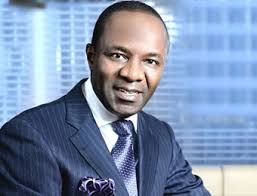Nigerians heaved a sigh of relief as the Minister of State for Petroleum Resources, Dr. Ibe Kachikwu assured residents of the Federal Capital Territory, FCT, and Lagos State that the difficulties they currently experience in getting petrol will be over by Thursday this week, adding that the Federal Government will soon find a permanent solution to the recurring fuel scarcity in the country. Nigerians will be pleased to see the queue which has consistently been noticed in the last one and half months to be a thing of the past going by Kachickwu’s declaration.
Addressing members of staff of the Petroleum Products Pricing Regulatory Agency, PPPRA, on Tuesday during his working visit to the agency in Abuja, he stated that everything was being done to clear the queues at filling stations, insisting that the country will soon be out of the problem with the ongoing price modulation for petroleum products.
Kachikwu, who doubles as the Group Managing Director of the Nigerian National Petroleum Corporation, NNPC, said the queues would disappear by Wednesday and Thursday in Abuja and Lagos, while the situation would improve in other parts of the country by the weekend.
According to him, “First and foremost, I am a servant and I am here to try and serve you and the Nigerian public. The ministerial togas and titles are important but frankly they mean nothing in the absence of good service and I think that should be the call to duty in this country.
“We need to enhance PPPRA and we need to ensure that as you advance your careers, they are in the right direction and one of those things we are going to do is to ensure that promotions that are long outstanding are all done and we are going to be looking at that within the next two weeks.
“Today we have the whole fuel queues and it is a complete nightmare for me, it is being a lot of work but the reality is that I hurt more like every Nigerian who is at the filling station, I am very emotional about my job and the things that I do.
“There isn’t sufficient reason why Nigerians should suffer this much, we just need to take the right policies as difficult as it comes, we need take the right policies to ensure that we do not have this recurrence of fuel scarcity, it’s been with us historically, but I don’t want that to define my legacy in the petroleum industry.
“Hopefully, by tomorrow through Thursday the fuel queues in Abuja should be over, hopefully the same thing will happen to Lagos and thereafter, by the weekend, we should see Kano, Katsina, Sokoto and Port Harcourt and Warri get off this state.
“But really, in the states, we do not have queues as such, people are paying double the price to get the product, and there is a place for that practice; but what it says to you is that obviously, there are some statistical philosophy we need to watch in terms of whether we are pricing our products rightly for people to be able to participate in this chain.”
The Minister, who stated that he was more concerned about preventing fuel queues from resurfacing in the country listed things that needed to be done to include: “First is that strategic reserve have not been in this country for over 20 years; we need to bring back strategic reserve that should serve 60 to 90 day product hold so that we can respond within a matter of hours when there is shortage in any part of the country, that is one.
“Two, is that we need to find how to handle allocation of resources; for the first time I have been able convince the major oil producers to allocate scarce foreign exchange to the downstream players to enable them bring in the product. But that’s not a futuristic long term solution, so we need to find a way of being able to fund this sector to do its work and no better way than to steer it to that path of privatisation. Let them go do their thing; we are going to have to look at that and it is not necessary synonymous with an increase in price.
“Hopefully, the price modulation that we have put in place will enable us do that. I saw reports that we have gone back to subsidy that is not true. The reality is that the first two months of price modulation our over recovery enable us to save quite a lot of money and that is going to fund the gap that you see in April but from May, obviously the price would be adjusted to match the current trend,” Kachikwu added.

